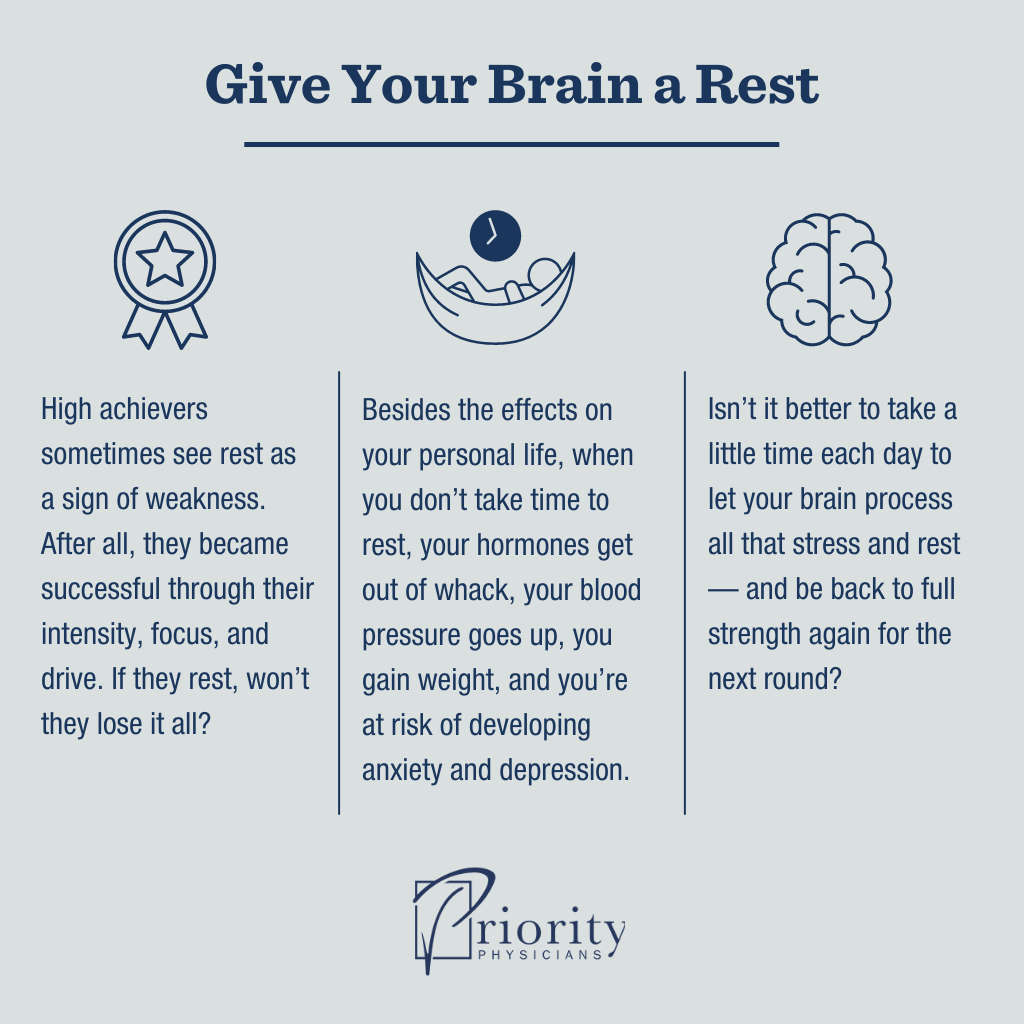Everyone experiences stress. It’s unavoidable, and it can even help us at times.
The question is, are you in control of your stress, or is stress in control of you?
In this post, we’ll look at what stress is, what it does, and the impact of stress on your habits and life.
What Is Stress?
Stress is an emotional reaction to your environment.
Hundreds of years ago, stress helped us survive. If a lion was chasing you, your stress response kicked in, focusing your energy and helping you get away from the threat.
We’re not running from lions too often today, but we still experience stress all around us.
Maybe you experience stress because you had a bad day at work. You don’t sleep well that night because you can’t stop thinking about it. Then your next day is even worse because you’re exhausted.
Even though stress is an emotional reaction, it’s not all in your head. Stress causes very real physical consequences like increased cortisol levels, rising blood pressure, and a lack of restful, deep sleep.
Is Stress Ever a Good Thing?
The benefit of stress is that it can motivate you, help you focus, and drive you to succeed.
Highly motivated, successful personalities often live in a constant state of stress. These are the perfectionists who are driven to outwork and out-think the competition. Their brains never stop considering possibilities and turning over problems.
These people push themselves constantly. They use stress to their advantage, becoming more focused, nimble, productive, analytical, and detail-oriented. It’s why they’re so successful climbing the corporate ladder or getting that startup off the ground.
People who live with this kind of stress can switch into a different mental gear than the rest of us. Stress doesn’t send them into survival mode. It actually helps them multitask, considering career problems even while they have an engaged conversation with a friend.
What Is the Negative Impact of Stress?
Too much of anything is a bad thing. And this is especially true for stress.
The trouble for type A, productive individuals is that the same stress that led to their success can also lead to big problems.
For example, stress might keep people focused and intent during the workday, but then they can’t shut it down after hours. They bring projects home, stay up late, and can’t stop talking about work.
These stress-induced habits impact other areas of their life. They lose sleep. Their spouse complains they can’t focus on anything but work. They miss out on time with their kids.
Often, high-performers who harness stress for work simply don’t know how to turn it off. Instead, they might use alcohol, food, or other substances to forcibly shut their minds and bodies down.
So the same stress that made someone successful can also torpedo their marriage, destroy their health, and turn them into an alcoholic.
How To Spot Too Much Stress
Everyone is living with some level of stress. And some people hide it better than others. But there are some signs to look for to know when you or someone else is overly stressed.
For yourself, you might notice things just don’t seem to be going right in your life. Your relationships are suffering, you’re not sleeping well, or you’re drinking or eating too much. You forget what your wife tells you, or you miss your kids’ soccer games.
In others, you might notice they’re having trouble focusing on the right things. They aren’t actively engaging in conversations, relationships, or hobbies, and they can’t talk about much besides work.
Alleviate the Impact of Stress
The impact of stress is very real and can significantly affect our health and well-being. So what can we do about it right now?
Choose Happiness
This may sound simplistic or cliché, but it’s really just a mindset shift. It’s making a decision to do the things that will subvert stress and lead to a happier life.
Decide to incorporate the following strategies into your days, and then follow through on that decision. It’s your life, and you get to choose what you do with it. Why not choose happiness?
Make Time for Yourself
Making time to let your brain do nothing but rest can be incredibly difficult for hard workers. It feels like wasted time and missed opportunities.
But just like scheduling your workday is important for productivity and success, scheduling time for yourself is important for rest and recovery.
Start by scheduling a 15- or 30-minute session for yourself every day. During this time, you don’t have to do anything. In fact, do nothing. Don’t check your phone. Or your email. Or your to-do list. Spend those minutes doing whatever you want for yourself — as long as it isn’t work.
Commit to keeping this meeting just like you would with your most important client.
Find a Healthy Outlet
We all need a healthy way to process stress. Identify positive outlets you can use to reduce the impact of stress in your life.
Different people need different activities to decompress from stress. Maybe it’s going for a run, reading a book, meditating, or watching ’90s sitcoms. There isn’t one right answer. The important thing is to find what works for you.
Give Your Brain a Rest
Stress makes our brains work incredibly hard. Under constant stress, our brains never get a chance to rest and process.
High achievers sometimes see rest as a sign of weakness. After all, they became successful through their intensity, focus, and drive. If they rest, won’t they lose it all?
The truth is, if you don’t give your brain a rest, you just might lose it all. Besides the effects on your personal life, when you don’t take time to rest, your hormones get out of whack, your blood pressure goes up, you gain weight, and you’re at risk of developing anxiety and depression.
Isn’t it better to take a little time each day to let your brain process all that stress and rest — and be back to full strength again for the next round?
 Take Control of Stress
Take Control of Stress
Some stress can be helpful, but only if you take control of the impact of stress on your life. Monitor your habits. Choose to make time for yourself, find healthy outlets, and give your brain a rest.
That’s the sustainable way to stay productive and have a happy and healthy life.

